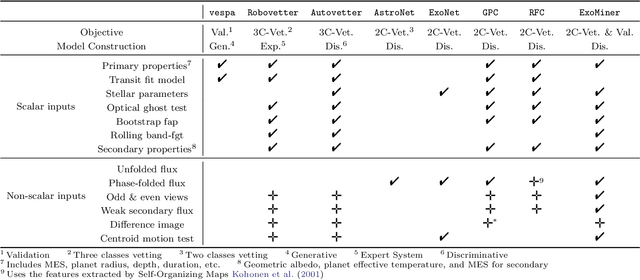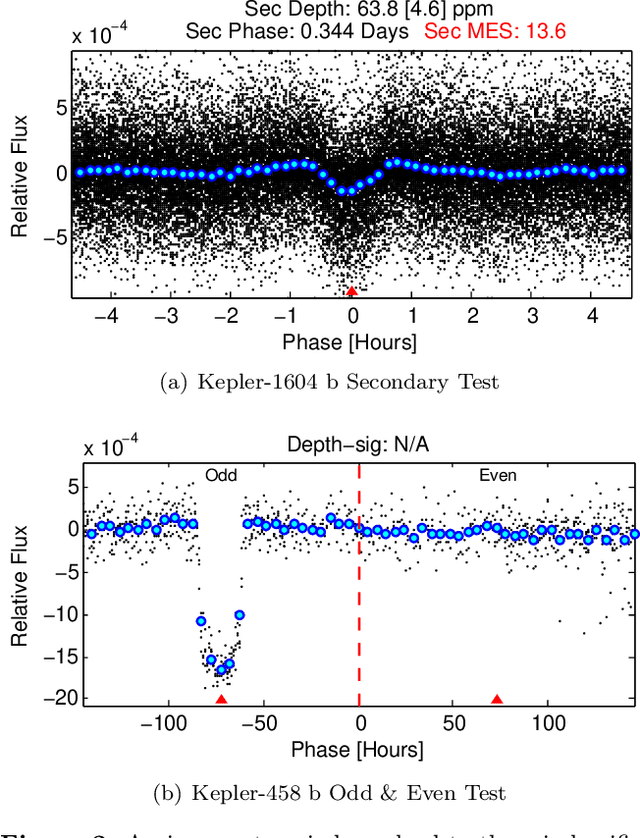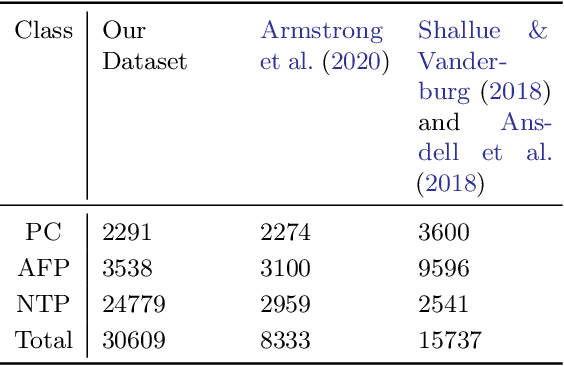Kaylie Hausknecht
Humanity's Last Exam
Jan 24, 2025Abstract:Benchmarks are important tools for tracking the rapid advancements in large language model (LLM) capabilities. However, benchmarks are not keeping pace in difficulty: LLMs now achieve over 90\% accuracy on popular benchmarks like MMLU, limiting informed measurement of state-of-the-art LLM capabilities. In response, we introduce Humanity's Last Exam (HLE), a multi-modal benchmark at the frontier of human knowledge, designed to be the final closed-ended academic benchmark of its kind with broad subject coverage. HLE consists of 3,000 questions across dozens of subjects, including mathematics, humanities, and the natural sciences. HLE is developed globally by subject-matter experts and consists of multiple-choice and short-answer questions suitable for automated grading. Each question has a known solution that is unambiguous and easily verifiable, but cannot be quickly answered via internet retrieval. State-of-the-art LLMs demonstrate low accuracy and calibration on HLE, highlighting a significant gap between current LLM capabilities and the expert human frontier on closed-ended academic questions. To inform research and policymaking upon a clear understanding of model capabilities, we publicly release HLE at https://lastexam.ai.
HARDMath: A Benchmark Dataset for Challenging Problems in Applied Mathematics
Oct 13, 2024



Abstract:Advanced applied mathematics problems are underrepresented in existing Large Language Model (LLM) benchmark datasets. To address this, we introduce HARDMath, a dataset inspired by a graduate course on asymptotic methods, featuring challenging applied mathematics problems that require analytical approximation techniques. These problems demand a combination of mathematical reasoning, computational tools, and subjective judgment, making them difficult for LLMs. Our framework auto-generates a large number of problems with solutions validated against numerical ground truths. We evaluate both open- and closed-source LLMs on HARDMath-mini, a sub-sampled test set of 366 problems, as well as on 40 word problems formulated in applied science contexts. Even leading closed-source models like GPT-4 achieve only 43.8% overall accuracy with few-shot Chain-of-Thought prompting, and all models demonstrate significantly lower performance compared to results on existing mathematics benchmark datasets. We additionally conduct a detailed error analysis to gain insights into the failure cases of LLMs. These results demonstrate limitations of current LLM performance on advanced graduate-level applied math problems and underscore the importance of datasets like HARDMath to advance mathematical abilities of LLMs.
ExoMiner: A Highly Accurate and Explainable Deep Learning Classifier that Validates 301 New Exoplanets
Dec 08, 2021



Abstract:The kepler and TESS missions have generated over 100,000 potential transit signals that must be processed in order to create a catalog of planet candidates. During the last few years, there has been a growing interest in using machine learning to analyze these data in search of new exoplanets. Different from the existing machine learning works, ExoMiner, the proposed deep learning classifier in this work, mimics how domain experts examine diagnostic tests to vet a transit signal. ExoMiner is a highly accurate, explainable, and robust classifier that 1) allows us to validate 301 new exoplanets from the MAST Kepler Archive and 2) is general enough to be applied across missions such as the on-going TESS mission. We perform an extensive experimental study to verify that ExoMiner is more reliable and accurate than the existing transit signal classifiers in terms of different classification and ranking metrics. For example, for a fixed precision value of 99%, ExoMiner retrieves 93.6% of all exoplanets in the test set (i.e., recall=0.936) while this rate is 76.3% for the best existing classifier. Furthermore, the modular design of ExoMiner favors its explainability. We introduce a simple explainability framework that provides experts with feedback on why ExoMiner classifies a transit signal into a specific class label (e.g., planet candidate or not planet candidate).
 Add to Chrome
Add to Chrome Add to Firefox
Add to Firefox Add to Edge
Add to Edge